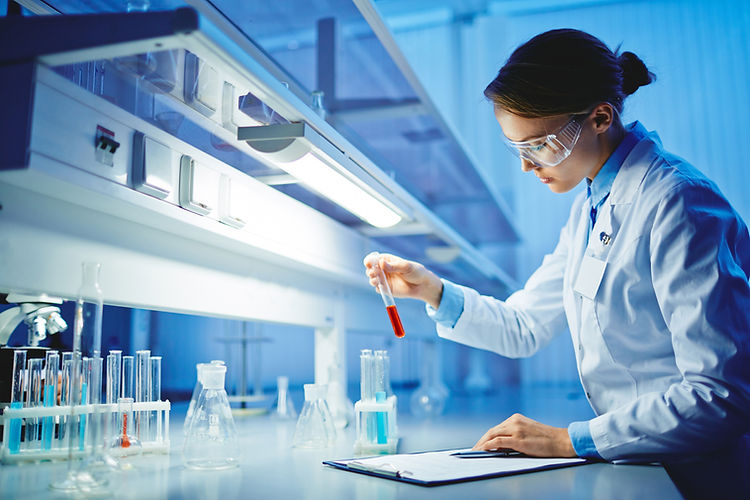The Advantage of Mesenchymal Stem Cells (MSCs) from Wharton's Jelly Umbilical Cord Cultured in Hypoxic Conditions

At BioXcellerator, we offer advanced protocols using high-potency mesenchymal stem cells (MSCs), cultured in both hypoxic and normoxic conditions in our treatment protocols.
Research shows that hypoxic and normoxic MSCs demonstrate exceptional anti-inflammatory properties, immune modulating capacity, and promote tissue repair and regeneration.
Treatment protocols are personalized for each patient based on their unique condition and goals.
Introduction:
Mesenchymal Stem Cells (MSCs) derived from Wharton’s Jelly of the umbilical cord have emerged as a promising source for regenerative medicine. The unique properties of these cells can be further enhanced when cultured in hypoxic conditions, unlocking a myriad of advantages that propel them to the forefront of innovative therapeutic applications.
1. Enhanced Proliferation and Viability:
Culturing MSCs from Wharton’s Jelly in a hypoxic microenvironment stimulates increased cellular proliferation and sustains heightened viability. This creates a substantial pool of robust and resilient cells, crucial for therapeutic interventions requiring significant cell numbers.
2. Augmented Anti-Inflammatory Potential:
Hypoxic culture conditions impart MSCs with an augmented anti-inflammatory phenotype. These cells exhibit an increased capacity to modulate inflammatory responses, presenting a valuable therapeutic strategy for conditions characterized by dysregulated immune reactions.
3. Superior Immunomodulation Abilities:
When exposed to hypoxic conditions, MSCs from Wharton’s Jelly demonstrate superior immunomodulation capabilities. This unique attribute enhances the cells’ ability to regulate immune responses, making them particularly valuable for treating immune-mediated disorders and promoting immune homeostasis.
4. Heightened Paracrine Factor Secretion:
MSCs unleash an increased secretion of paracrine factors under hypoxic conditions. This heightened release of bioactive molecules, including growth factors and cytokines, contributes to the cells’ therapeutic efficacy by promoting tissue repair, angiogenesis, and immunomodulation.
5. Advanced Angiogenic Potential:
Cultivating Wharton’s Jelly MSCs in hypoxic environments amplifies their angiogenic potential. This enhancement is critical for promoting neovascularization in damaged tissues, facilitating improved blood supply, and accelerating the regenerative process.
6. Increased Resistance to Senescence:
MSCs cultured in hypoxic conditions from Wharton’s Jelly display increased resistance to senescence. This characteristic ensures a prolonged therapeutic window, allowing for sustained benefits in regenerative treatments and reducing the risk of cell exhaustion.
7. Ethical Sourcing and Non-Invasive Collection:
The ethical considerations surrounding the use of MSCs are addressed through the non-invasive collection of Wharton’s Jelly from the umbilical cord. This ensures a responsible and sustainable source for obtaining therapeutic cells, aligning with ethical standards in regenerative medicine.
8. Versatility for Diverse Therapeutic Applications:
The adaptability of MSCs from Wharton’s Jelly cultured in hypoxic conditions positions them as versatile candidates for diverse therapeutic applications. These cells showcase a wide range of potential medical applications from orthopedic interventions to neurological disorders.
9. Support for Neurological Regeneration:
Wharton’s Jelly MSCs exhibit unique potential in supporting neurological regeneration when exposed to hypoxic conditions. This opens new avenues for treating neurological disorders and injuries where traditional therapies may fall short.
10. Future Research Implications:
Applying hypoxic culture conditions to Wharton’s Jelly MSCs opens avenues for future research. Investigating the specific mechanisms underlying the observed enhancements can provide valuable insights, shaping the future of regenerative medicine.
In conclusion, the advantages of cultivating MSCs from Wharton’s Jelly in hypoxic conditions offer a transformative approach to regenerative medicine. From bolstered anti-inflammatory properties to heightened angiogenic potential, these cells present a robust foundation for advancing therapeutic interventions and shaping the landscape of regenerative medicine.
Hear What Our Patients Say about Their Results and Recovery
Want to learn more about our advanced stem cell therapy, hypoxic cells, and to see if treatment is right for you?
References
- Skowroński, J. & Rutka, M. Osteochondral lesions of the knee reconstructed with mesenchymal stem cells – results. Ortop. Traumatol. Rehabil. 15, 1–1 (2013).
- Koh, Y.-G., Kwon, O.-R., Kim, Y.-S., Choi, Y.-J. & Tak, D.-H. Adipose-Derived Mesenchymal Stem Cells With Microfracture Versus Microfracture Alone: 2-Year Follow-up of a Prospective Randomized Trial. Arthrosc. J. Arthrosc. Relat. Surg. 32, 97–109 (2016).
- de Windt, T. S. et al. Allogeneic Mesenchymal Stem Cells Stimulate Cartilage Regeneration and Are Safe for Single-Stage Cartilage Repair in Humans upon Mixture with Recycled Autologous Chondrons. Stem Cells 35, 256–264 (2017).
- de Windt, T. S. et al. Allogeneic MSCs and Recycled Autologous Chondrons Mixed in a One-Stage Cartilage Cell Transplantion: A First-in-Man Trial in 35 Patients. Stem Cells 35, 1984–1993 (2017).
- Hashimoto, Y. et al. Transplantation of autologous bone marrow-derived mesenchymal stem cells under arthroscopic surgery with microfracture versus microfracture alone for articular cartilage lesions in the knee: A multicenter prospective randomized control clinical trial. Regen. Ther. 11, 106–113 (2019).
- Cho, W. S. et al. Mesenchymal Stem Cells Use in the Treatment of Tendon Disorders: A Systematic Review and Meta-Analysis of Prospective Clinical Studies. Ann. Rehabil. Med. 45, 410–410 (2021).
- Havlas, V. et al. [Use of cultured human autologous bone marrow stem cells in repair of a rotator cuff tear: preliminary results of a safety study]. Acta Chir. Orthop. Traumatol. Cech. 82, 229–34 (2015).